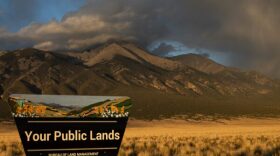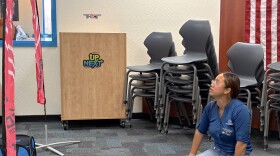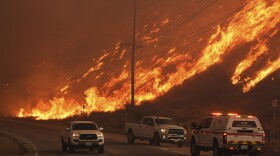-
The Department of the Interior has issued new guidelines on the National Environmental Policy Act.
-
Modern drones map farmland, inspect power lines and help fight wildfires across the Mountain West. Nationwide, the drone industry now employs more than 100,000 people — and demand for trained pilots continues to grow.
-
The discovery in the Nevada desert could make a big difference to consumers in the future
-
A celebration turns into a demonstration at the Death Valley National Park after Timbisha Shoshone historical plaques were removed from the park's visitors center.
-
The legislature is looking at stopping SLAPPs, lawsuits meant to silence people who speak out, like journalists or whistleblowers.
-
Steve Pearce, Trump's pick to lead the Bureau of Land Management, said he would not propose large-scale sales of public lands.
-
The team, led by a Boise State University civil engineering researcher, looked at half a million wildfire starts, and hundreds of attributes about them. Beyond the obvious weather variables like wind speed, temperature and humidity, they also considered human factors like density of development.
-
A new report finds 2025 brought widespread drought, massive wildfires and destructive windstorms across several Mountain West states — and underscores how closely connected those disasters have become.
-
Wildfires are a top concern across the region. But certain parts also fall within "hail alley" — the part of the country that sees the most hailstorms. It's driving up insurance costs in unexpected places.
-
That exhibit at the Hubbell Trading Post National Historic Site on the Navajo Nation — still under review — hasn't been taken down yet, but his name is literally inseparable from this land in northeastern Arizona and its rich history.

Play Live Radio
Next Up:
0:00
0:00
Available On Air Stations










